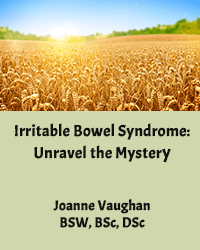‘It is not my fault’ – The great Relationship inhibitor:
Hard to put up a good argument against this truth: One of the biggest road blocks to getting past conflict in your relationships, is the ‘It’s not my fault!’ syndrome.
Conflict starts from a lot of different jumping off points:
i) Flat out bad behaviour – is that you?
If it is, take ownership and set out to correct it with who ever you offended. Ask yourself these questions; what was I thinking before the behaviour, choice of words, whatever. How do I apologize without causing more upset. You can’t. You caused upset, own up and settle up with an understanding and listening ear, prepared to help heal the situation.
Apologize for a specific behaviour, not a sweeping generalization of ‘Sorry, I didn’t mean to hurt your feelings.’ The fact is, it does not matter. You did hurt someone’s feelings. “I owe you an apology for not listening as you wanted me to.” “I owe you an apology for not calling you when I told you I would and you were expecting my call.” “For being late and giving you the impression your time is not valuable, it is, I was wrong and did not plan properly.”
Apologize thoughtfully and as follows:
“For what ever happened”
“Name the error you made, apply it the event where you made the error, how it may have impacted the person you let down and wait for their response.”
ii) Unintentional behaviour – still you? Behaviour, intentionally or unintentionally invoked still injures, still requires an apology and a willingness to listen and help heal the situation.
Apologies need to be swift, accountable and specific. An apology is specific to a situation that happened. Here is an example: ‘Honey, I forgot to pick up the … I apologize, I will run out now and get it.’
No excuses, no explanations, full ownership and acknowledgement you let someone down. That is not always easy.
The number of excuses, explanations jumping off the page to quell your sense of ‘It was not my fault’, do not stop, each as satisfying as the one previous. Resist! You must resist. You grab an excuse, you cause more issues, this time, trust. Every explanation, excuse you interject into your apology sounds like your need to absolve your own actions, is more important than your responsibility to make some else feel better by the actions you caused.
In fact, given you have offered an apology quickly, swiftly and unconditionally, is more likely to reward you back with ‘Thank you honey, I am sure it was unintentional.’ You offered the gift of importance to you friend, partner, who ever, they will likely offer the gift back.
Let us be honest, apologies in smaller situations are much easier to give and get past then in more difficult situations. Even with that said, Apologies all start at the same place and they all take the same path. No excuses, no explanations, unless you are asked for one, explanation that is. If someone says to you ‘What is your excuse this time?’ …. time to do a self check on how trustworthy and responsible you are behaving, including necessary upgrades.
It is your responsibility to correct errors of planning and priorities. The person you let down is and should be assured you know you were wrong and it will be corrected going forward. A lapse in judgement, a lapse in priorities in any event, is an error.
Lapses in behaviour, judgement, actions, does this – erodes trust.
Trust is elusive and flighty.
Conflict challenges trust.
And no, it is not easier to ask for forgiveness. It is never easy to ask for forgiveness or admit an error, nor should it be. The better you is the one who won over the friend or loved one. The lesser you will be the reason the strength of the relationship is tested.
Trust is the deep connective thread that weaves the basis of your relationships, the intimate, the family ties and the casual. If your conflicts are woven with – I don’t trust you or I don’t trust you understand or care to take the time to correct and help heal the injury you caused, the undercurrent will carry the conflict in an entirely different direction.
Apologies need to be specific to an event, a statement of ‘I let you down’ or ‘I have upset you and I take full responsibility for my error in behaviour … fill in the specific event’, that leads to healing.
The conflict dance of excuses, explanations or avoidance, lead ultimately to negotiation and appeasement, really short lived. We live our emotional life much deeper than the shallow end of the pool of’ in the moment’ promises.
We live our lives much deeper and no amount of compromise or empty moment to moment eclipses of promises to change will ever satisfy the burning desire to have commitments kept, promises of reliability met and understanding and acknowledgement when any of that is not held to the standard of importance deserved and required, to build trust.
Take action swiftly. Do not try to manipulate your loved one, nor try to appease. When you are done apologizing, invite a response. Do not interrupt the response from your friend or loved one. Offer understanding. You hurt their feelings. Your actions made them feel less important and that is wrong. If your friend or loved one does not hold the position of utmost importance they deserve or should deserve, then reconsider your commitment and their deserving of better. They deserve to feel important. If the relationship is more difficult that it should be then assess the health of and determine from there, whether you or your friend should continue.
But in all relationships, when you must apologize, apologize, leave the other person intact and feeling important. What ever decision you make from there, you will move forward a stronger person who takes authority over their behaviour and understands how their behaviour impacts others. That is taking control.
Expect the same back. Expect the same gift of acknowledgement through an apology and your position of importance in the lives of your friends and loved ones. It is then we trust, not until and not with anything less than.




Leave a Reply